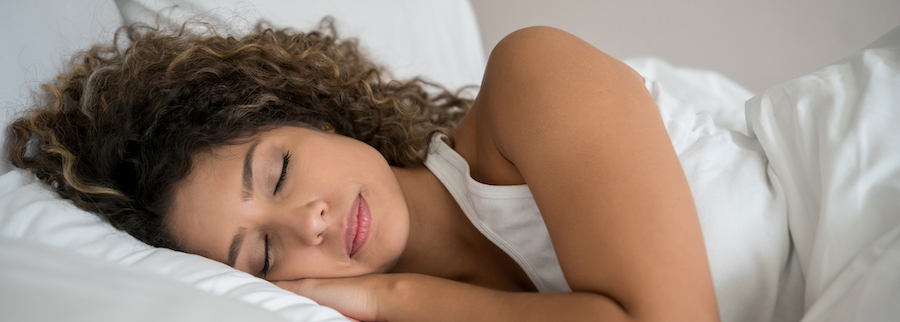Dreaming of Better Sleep?
According to the Centers for Disease Control and Prevention (CDC), a significant portion of adults in the United States experience issues with not getting enough sleep. Lack of sleep can harm your physical, mental and emotional health and put you at higher risk for chronic diseases.
 One in three adults in the U.S. has a sleep disorder
One in three adults in the U.S. has a sleep disorder
(Source: National Institutes of Health)
Treatment for Sleep Disorders
The Sleep Center team at Aiken Regional Medical Centers focus on diagnosing and treating sleep disorders, such as sleep apnea, insomnia, periodic limb movement disorder and other conditions. The Sleep Center offers comfortable, private bedrooms equipped with a sound machine and a large bed with hotel-grade linens.

Why Is Quality Sleep Important?
Getting a high-quality night's sleep is beneficial in many ways. It can help:
- Lower your risk for chronic disease
- Boost your immune system
- Improve your mood and energy level
- Improve your brain function
Poor quality of sleep can increase your risk of:
- Cardiovascular disease
- Cognitive decline and dementia
- Depression
- High blood pressure, blood sugar and cholesterol
- Obesity
How to improve the quality of your sleep
-
 Consistency is key. Go to bed and get up at the same time every day.
Consistency is key. Go to bed and get up at the same time every day. - Turn off all electronic devices 30 minutes before bed and place them outside your bedroom to charge.
- Keep your bedroom dark, quiet, relaxing and at a cool temperature at bedtime.
- Get regular exercise and eat a healthy diet.
- Avoid consuming caffeine in the afternoon and evening. Do not consume large meals and alcohol before bedtime.
Talk to your doctor if you are consistently having trouble sleeping, feel excessively tired or have trouble staying asleep.
Is Lack of Sleep Interfering With Your Daily Life?
Have you been experiencing any of the following symptoms for more than a few weeks?
- Tiredness during the daytime
- Snoring or stopping breathing in your sleep
- Waking up with a headache
- Having difficulty falling/staying asleep
- Snoring loudly
- Gasping or choking while sleeping
- Feeling tingling or restlessness in your legs when trying to sleep
If any of these symptoms sound familiar to you, it may be time to talk to your healthcare provider about a sleep study.
Sleep Studies
Sleep studies are noninvasive tests that involve attaching small monitoring devices to the head, arms, legs and torso to record and analyze your brain waves, breathing, heart rate, oxygen levels and muscle activity while you sleep.
Learn more about sleep studies →
Set up a Sleep Study
Whether you require an at-home study or a more in-depth, in-lab diagnostic test, our team is available to help you find a solution for your best sleep. For more information, call 803-641-5370.
